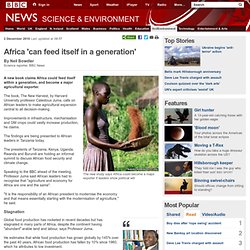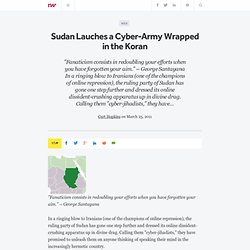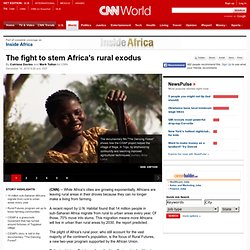

Zimbabwe. AllAfrica.com ENG. Africa 'can feed itself in a generation' 2 December 2010Last updated at 09:57 By Neil Bowdler Science reporter, BBC News The new study says Africa could become a major exporter if leaders show political will A new book claims Africa could feed itself within a generation, and become a major agricultural exporter.

The book, The New Harvest, by Harvard University professor Calestous Juma, calls on African leaders to make agricultural expansion central to all decision-making. Improvements in infrastructure, mechanisation and GM crops could vastly increase production, he claims. The findings are being presented to African leaders in Tanzania today. The presidents of Tanzania, Kenya, Uganda, Rwanda and Burundi are holding an informal summit to discuss African food security and climate change. Speaking to the BBC ahead of the meeting, Professor Juma said African leaders had to recognise that "agriculture and economy for Africa are one and the same". Stagnation Continue reading the main story End QuoteProfessor Calestous JumaHarvard University.
Sudan Lauches a Cyber-Army Wrapped in the Koran. "Fanaticism consists in redoubling your efforts when you have forgotten your aim.

" -- George Santayana In a ringing blow to Iranians (one of the champions of online repression), the ruling party of Sudan has gone one step further and dressed its online dissident-crushing apparatus up in divine drag. Calling them "cyber-jihadists," they have promised to unleash them on anyone thinking of speaking their mind in the increasingly hermetic country. Mandur al-Mahdi, a senior official with the country's governing (sort of) National Congress Party announced that its "'cyber battalion' was leading 'online defence operations," according to the BBC. The "Arab Spring" uprisings that have leaped across the Maghreb into Egypt and beyond have not left the soon-to-be-divided Sudan alone.
As with most of the countries in the area, Sudan too had a hashtag date for its revolution, #jan30. But the protests do not seem to have grown over time as they have elsewhere. Other sources: ONI. Official Expects New Jobs from North African Partnership. Fenix launches off-grid power for developing world. Whereas many Silicon Valley tech entrepreneurs are trying to cook up the next Facebook or cool iPhone app, a group of San Francisco entrepreneurs is designing a brick-shaped battery for poor people.

"Social venture" Fenix International officially launched yesterday with the opening of its Web site, which describes its plans to sell off-grid power systems for people in developing countries. It plans to start manufacturing its battery pack this fall and is now negotiating with potential distributors in Africa, India, Bangladesh, and Latin America, company executives said today. It plans to first launch its products in four African countries first. Fenix International, a for-profit company, is trying to reach the 1.6 billion people who live without regular access to electrical power, explained CEO Mike Lin, a former Apple employee and environmental engineering lecturer at Stanford University, who started the company almost two years ago. The fight to stem Africa's rural exodus. 14 million sub-Saharan Africans migrate from rural to urban areas every yearRural Futures program set up to boost farming communitiesCIDAP is a grassroots movement that has turned around fortunes of Togolese village CIDAP's story is told in the documentary "The Dancing Forest" (CNN) -- While Africa's cities are growing exponentially, Africans are leaving rural areas in their droves because they can no longer make a living from farming.

A recent report by U.N. Habitat found that 14 million people in sub-Saharan Africa migrate from rural to urban areas every year. Of those, 70% move into slums. This migration means more Africans will live in urban than rural areas by 2030, the report predicted. The plight of Africa's rural poor, who still account for the vast majority of the continent's population, is the focus of Rural Futures, a new two-year program supported by the African Union. Agriculture should be the backbone of the continent, but needs to be transformed. "We're seeing changes now.